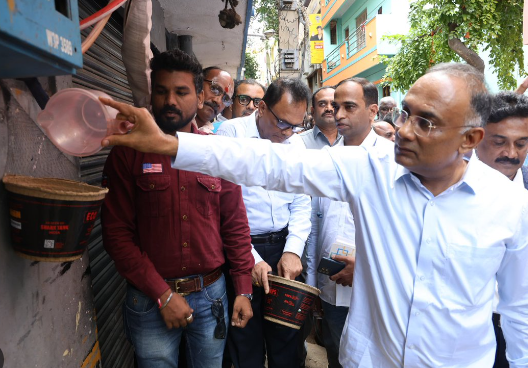Karnataka Launches Ovitrap Baskets to Combat Rising Dengue Cases
Karnataka has reported around 24,028 dengue cases and five deaths. To tackle this outbreak, the state’s health department started a pilot project on August 26, 2024, using Ovitrap baskets to attract and monitor mosquitoes.
What Are Ovitrap Baskets?
Ovitrap baskets are special traps designed to attract mosquitoes that breed in containers, like Aedes aegypti and Aedes albopictus. These traps are dark containers filled with water and a surface for mosquitoes to lay their eggs on. The baskets also have a mesh to keep the mosquitoes from escaping and can contain insecticides to kill them.
How Do Ovitraps Work?
The main purpose of Ovitraps is to keep an eye on mosquito populations. When mosquitoes lay their eggs in the Ovitrap, the eggs fall into the water. This helps health officials identify areas where mosquitoes are breeding. Regular monitoring with Ovitraps allows for quick action to prevent potential dengue outbreaks. Ovitraps have been proven effective for monitoring mosquitoes worldwide. Studies show that they can detect mosquito presence and track population trends. More advanced versions, called lethal Ovitraps, have significantly reduced mosquito populations, with some tests showing an 87% drop in Aedes females caught.
Global Use of Ovitraps
Countries like Hong Kong, Singapore, and Australia have successfully used Ovitraps for regular mosquito monitoring and dengue control. In Indonesia, Ovitraps with copper effectively killed mosquito larvae, while Taiwan used Ovitrap data to manage dengue outbreaks. The Philippines saw a 97% decrease in dengue cases using larvicidal Ovitraps.
Ovitraps in India
In India, Ovitrap baskets have been used in Assam to monitor Aedes mosquitoes. Research in the Sonitpur district showed that Ovitraps are effective in identifying high-risk areas for dengue, helping to create targeted strategies for controlling mosquitoes.
Month: Current Affairs - August, 2024
Category: States Current Affairs







